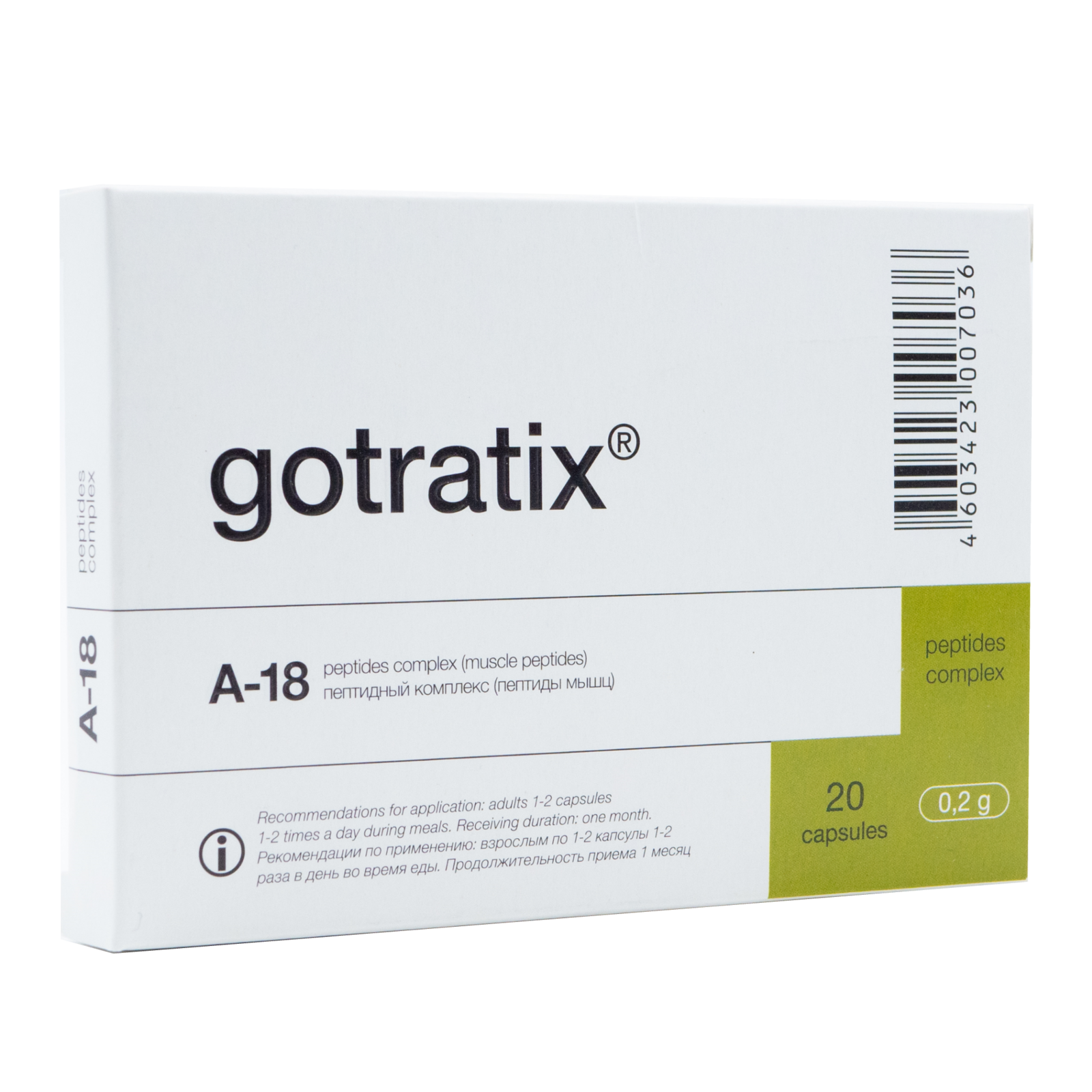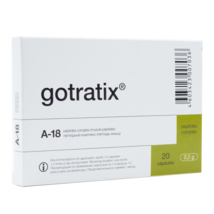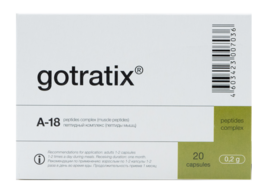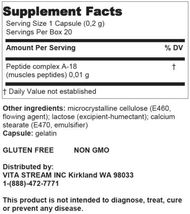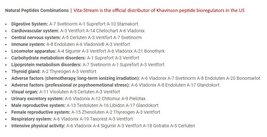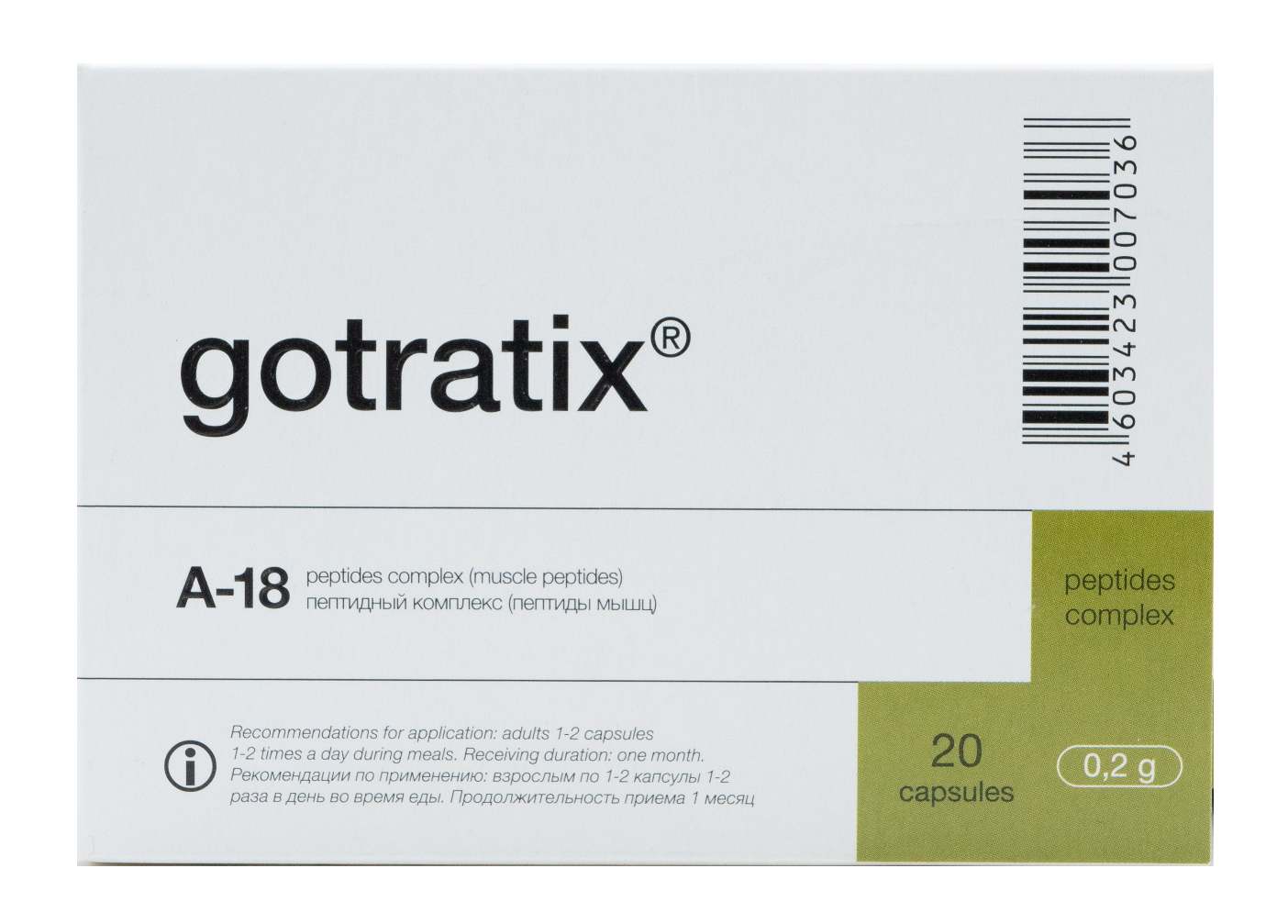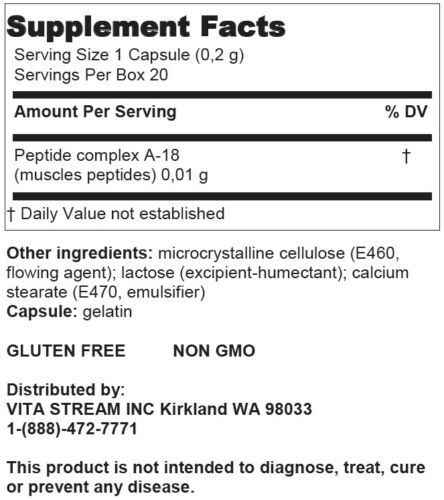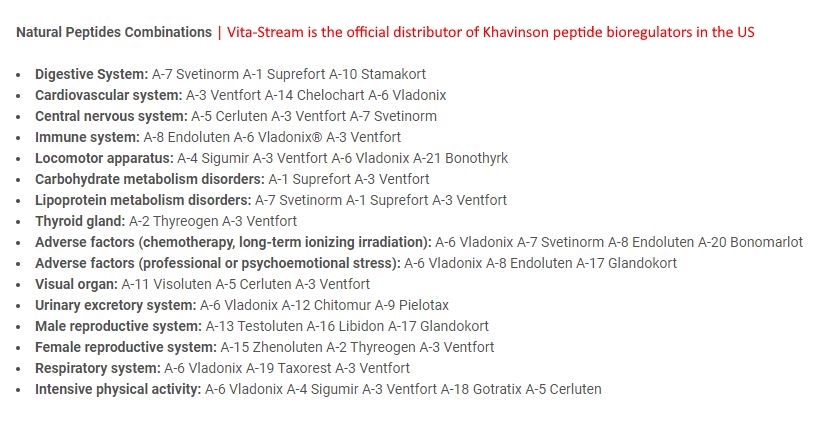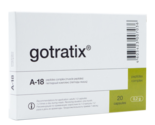Rendered at 13:04:00 08/01/25
Free Shipping
A-18 Gotratix - Khavinson natural muscle peptide 20 capsules
$55.00
Shipping options
Estimated to arrive by Mon, Aug 11th.
Details
FREE via Standard shipping (1 to 5 business days) to United States
Return policy
None: All purchases final
Purchase protection
Catalog info
Payment options
PayPal accepted
PayPal Credit accepted
Venmo accepted
PayPal, MasterCard, Visa, Discover, and American Express accepted
Maestro accepted
Amazon Pay accepted
Nuvei accepted
Shipping options
Estimated to arrive by Mon, Aug 11th.
Details
FREE via Standard shipping (1 to 5 business days) to United States
Return policy
None: All purchases final
Purchase protection
Catalog info
Payment options
PayPal accepted
PayPal Credit accepted
Venmo accepted
PayPal, MasterCard, Visa, Discover, and American Express accepted
Maestro accepted
Amazon Pay accepted
Nuvei accepted
Item traits
| Category: | |
|---|---|
| Quantity Available: |
100 in stock |
| Condition: |
New |
| UPC: |
4603423007036 |
| Brand: |
Evolv Supplements |
| Gender: |
Unisex |
| Formulation: |
Capsule |
| Purpose: |
muscle peptide bioregulator. |
| Supplement Purpose: |
Muscle health |
Listing details
| Seller policies: | |
|---|---|
| Shipping discount: |
No combined shipping offered |
| Posted for sale: |
More than a week ago |
| Item number: |
839547675 |
Item description
Contains 20 capsules: 10-day course
Gotratix is the muscle peptide bioregulator.
Serves the same role as peptide bio-regulators developed naturally in the body
Reducing peptide deficiency
Restoring protein synthesis inside cells
Gotratix - The muscle peptide bioregulator.
Gotratix is a dietary supplement with natural muscle peptides. Muscles start withering and weakening around age 40. The process of muscle loss accelerates after 75 and often leads to disability. Muscle health is also key to successful athletic performance, so it should not be neglected.
What is a peptide bioregulator?
A peptide is a short chain of amino acids, identified by the fact that it is shorter than a protein, and so can be absorbed easily via the digestive system. Each organ or bodily function has its own unique peptide bioregulator. Peptide bioregulators have been shown to shortcut the protein synthesis process by interacting directly with cell DNA – meaning that organs can build and repair tissues easier and quicker when peptide bioregulators are active.
Peptide Bioregulators
Russian peptide technology was founded during the Cold War years- to help protect elements of the then Soviet forces.
Today Professor Vladimir Khavinson is the President of the European Academy of Gerontology and Geriatrics, but in the 1980’s he was a Colonel in the Soviet Union military medical corps. At the time, he and his team were approached by Kremlin officials, they wanted them to find a way to protect their troops from a myriad of problems; issues such as radiation for submariners in nuclear submarines to troops that may be blinded from known, (but thankfully unused) new weapons such as battlefield lasers.
What their secret research uncovered - that was used for two decades on many thousands of men and women - was a remarkable link between short chain peptides and DNA.
Now their published research is in the open and it identifies that each organ / gland / tissue uses a highly specific short chain peptide to act as a ‘short cut’ to initiate protein synthesis. These peptides can be found in food and unlike proteins they can enter the blood through the stomach. Through a comprehensive list of patents and even copyrighted PowerPoint slides, the Russian research group are showing that each of the concentrated peptide bioregulators so far examined interact with particular strands of DNA - effectively and very specifically activating repair and regenerative processes.
Professor Khavinson and his award winning team at the St Petersburg Institute of Biogerontology have discovered that each organ / gland has a biological reserve and despite the origin of the tissue they have studied, incredibly each one is always set at 42%
Get an item reminder
We'll email you a link to your item now and follow up with a single reminder (if you'd like one). That's it! No spam, no hassle.
Already have an account?
Log in and add this item to your wish list.


